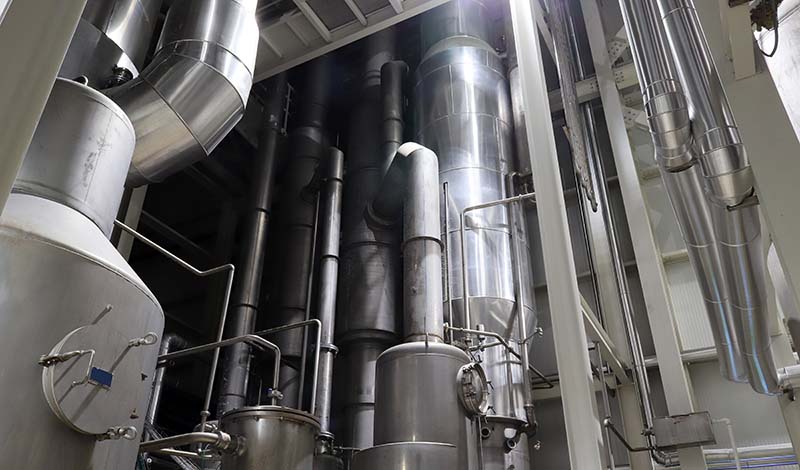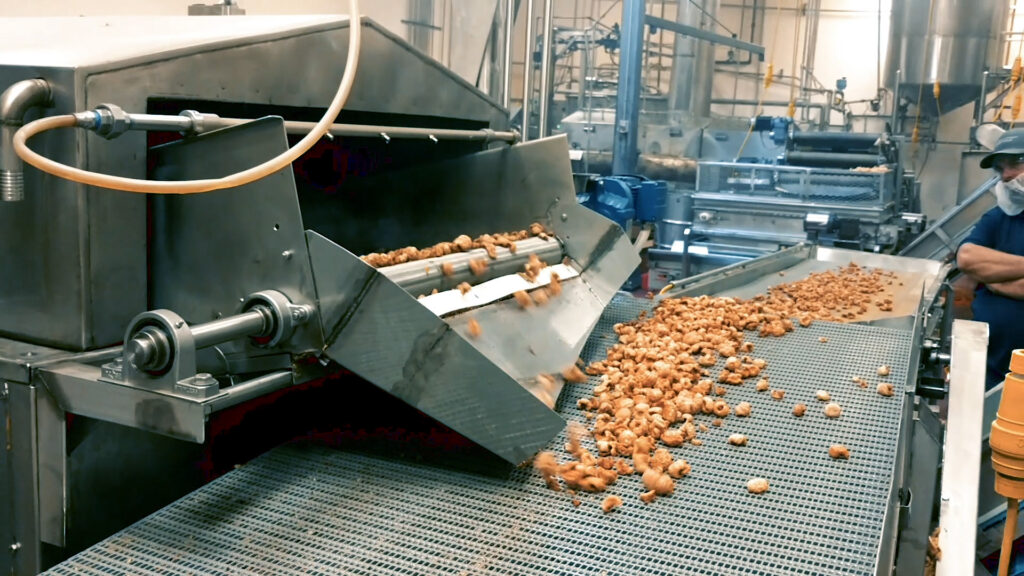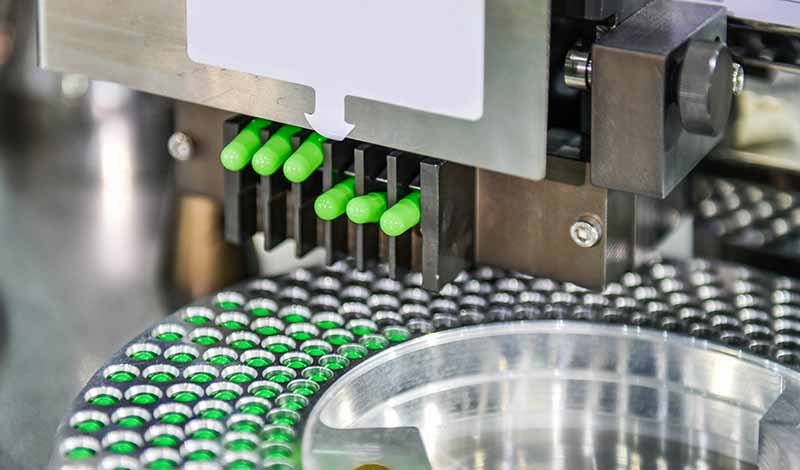
The evolving demands of the food and pharmaceutical industries require an unprecedented focus on the sanitary design of processing equipment. Both industries depend heavily on the ability to produce high-quality, safe products consistently.
Sanitary process equipment is vital for ensuring the quality and safety of the food products and medications we consume. This understanding underpins the necessity of applying sanitary design principles, including advanced welding techniques such as purge welding, to food manufacturing and pharma industry operations.
Purge welding is a specialized form of gas-shielded welding that eliminates the risk of contamination from oxidation and other impurities. Purge welds are clean, free from pores, and can be used to join multiple pieces of stainless steel without compromising quality or safety standards.
PEC has certified sanitary welders on staff with the expertise and experience to produce consistent, reliable purge welds for your specific needs. We use advanced welding techniques that meet advanced industry standards, ensuring that you get maximum value from your investments. With our help, you can rest assured that your operations will be able to consistently deliver high-quality, safe products.
Hygienic equipment design is a cornerstone of sanitary processing in both the food and pharma industries. Understanding and applying its core principles helps businesses ensure their production processes are as efficient and safe as possible.
One of the fundamental principles of hygienic design is that the equipment should be easy to clean and maintain. This prevents the build-up of products or debris, which could harbor harmful bacteria or contaminants. This principle is closely tied to the quality of materials used in equipment construction. Stainless steel is a popular choice due to its non-corrosive, easy-to-clean nature and high durability.
Another important aspect of hygienic equipment design is ensuring that the equipment doesn’t adversely affect the product, and vice versa. The equipment should not introduce any contaminants to the product. Also, the product should not cause corrosion or degradation of the equipment.
Furthermore, the design should allow for effective and efficient monitoring and inspection. This way, potential issues can be identified and rectified promptly, ensuring high-quality, safe products consistently.
Stainless steel holds a pivotal role in the sanitary processing of food and pharmaceutical products. It’s lauded for its resistance to corrosion, durability, and ease of cleaning. This makes it an ideal material for equipment that comes into direct contact with consumable goods.
Its smooth surface minimizes the accumulation of residue. This helps to prevent the growth of bacteria or other harmful microorganisms, thus contributing significantly to sanitary processing.
To ensure optimal working conditions of stainless steel equipment, it is crucial to employ proper welding techniques during the initial installation phase and to perform regular maintenance. Implementing these measures not only enhances the durability of the equipment but also contributes to its long-term functionality and performance.

Sanitary processing is integral to the food industry, ensuring the safety, quality, and shelf-life of processed foods. From preparation to packaging, every step requires stringent sanitary measures.
Hygienic food processing equipment and sanitary protocols prevent cross-contamination and the growth of harmful microorganisms for food safety.
Sanitary process equipment is vital for preserving freshness, nutritional value, and extending the shelf-life of food products. Automated systems streamline processes and minimize human error, guaranteeing food product safety and quality.
Navigating the landscape of food safety, we lean on concrete statistics to guide us. This section offers valuable insights through data on foodborne illnesses, their economic impact, and prevalent food safety violations. These figures highlight the crucial need for stringent food safety standards, reinforcing the services we offer, including system integration. Let’s delve into these informative stats.
At PEC, we specialize in providing top-of-the-line sanitary process equipment to the pharma and food industries. We offer the design and integration of cutting-edge pharmaceutical manufacturing equipment, such as tablet presses, meeting the highest sanitary standards.
We collaborate with clients to tailor solutions that suit their specific requirements, ensuring smooth and efficient production of high-quality products. PEC is dedicated to revolutionizing sanitary processing in the food and pharma industries by staying current with technology and regulatory trends.
Capsule and tablet presses play a vital role in pharmaceutical production, transforming active ingredients into digestible forms. The sanitary design of these presses is critical for ensuring the highest standards of product quality and safety. Using stainless steel, easy-to-clean surfaces, and minimizing dead spaces in design reduces the risk of contamination and biofilm formation.
Moreover, the accuracy of dosing mechanisms in these machines is critical for ensuring consistent product quality. Modern tablet presses now feature advanced process control and monitoring systems to detect and mitigate any deviations in real-time. As such, the design and operation of capsule and tablet presses exemplify the application of sanitary design principles in pharmaceutical production.

Sanitary process equipment will evolve with technology and regulatory standards in the food and pharma industries. AI and machine learning will play an increasingly important role in process control, monitoring, predictive maintenance, and quality assurance.
Robotics and automation will further streamline manufacturing processes and minimize the risk of contamination from human operators. As sustainability gains importance, anticipate an increased focus on energy efficiency and waste reduction in the design and operation of sanitary process equipment.
As we move forward, the food and pharma industries must remain committed to investing in sanitary design and maintenance. These sectors must stay up-to-date on emerging technologies and standards to ensure product quality, safety, and operational efficiency.
The sanitary design of food and pharma processing equipment is a vital aspect of manufacturing in these industries. It ensures product safety and quality, optimizes production efficiency, and meets regulatory standards.
At PEC, we stand at the forefront of this revolution with a team of skilled professionals, innovative services, and cutting-edge technologies. Our team of certified sanitary welders sets us apart in the processing industry. They excel in advanced welding techniques, including purge welding for sanitary piping systems.
With their expertise, we ensure all equipment meets strict safety and quality measures. As your trusted partner, PEC optimizes your production processes and equipment integrity, helping your business excel.
Don’t hesitate to reach out to the PEC team today. With our certified sanitary welders and an array of innovative services, we’re ready to build a safer, more productive future for your business together.